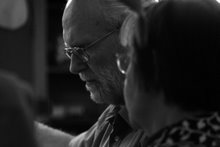(from Ekklesia)
The president of one of Britain’s leading secularist organisations has stoked the row over faith in public life by accusing “apparently harmless liberals” who practice religion of “enabling the fanatics” who promote intolerance and use bombs.
In an article entitled Going to the extremes, published on the Guardian newspaper’s Comment-is-Free website, Terry Sanderson of the National Secular Society (NSS) claims that liberal believers share or excuse “the same beliefs that motivate bombers and theocrats, misogynists and homophobes”.
He sees ‘moderate’ religious people as being the equivalent of “human shields” for terrorists, and makes no apparent exceptions. Engaging with religious liberals will not help to undermine extremists; it will only enable and protect them, the article argues.
Mr Sanderson says that “the delusions of liberal religionists are not qualitatively different from those entertained by the Pat Robertsons or Abu Hamzas of this world”. He also believes that all people of religious opinion or practice are “brainwashed” in ways “that they will never overcome”.
The article draws on the work of vociferous American commentator Sam Harris, who has attacked the idea of cooperation between nonbelieving secularists and mainstream, moderate or progressive religious believers.
The view of all religious belief as inherently corrupting or as a ‘virus’ has been spread by a range of writers who identify themselves as atheist or freethinking. Richard Dawkins’ book The God Delusion is widely associated with this outlook.
However, other secularists, humanists and non-believers are dismayed by such views. One website respondent to Mr Sanderson’s article described it as “intemperate and illogical... He doesn’t speak for a non-religious person like myself.”
The Rev Dr Giles Fraser, Anglican vicar of Putney and lecturer in philosophy at Wadham College, whose books include a sympathetic study of Nietzsche called The Piety of Unbelief, also takes a very different view.
He declares: “Media atheists are fast becoming the new best friends of fundamentalist Christians. For every time they write about religion they are doing very effective PR for a fundamentalist worldview.”
Continues Fraser: “Both partners in this unholy alliance agree that fundamentalist religion is ‘the real thing’ and that more reflective and socially progressive versions of faith are pale imitations, counterfeits even.”
He adds: “This endorsement is of enormous help to fundamentalists. What they are really threatened by is not aggressive atheism - indeed that helps secure a sense of persecution that is essential to group solidarity - but the sort of robustly self-critical faith that knows the Bible and the church’s traditions, and can challenge bad religion on its own terms.”
Simon Barrow of the UK Christian think tank Ekklesia commented: “The idea that people may simply be divided into categories like ‘liberal’ and ‘conservative’, or ‘religious’ and ‘non-religious’, is not one that bears a lot of scrutiny. But it does seem to appeal to people on all sides who feel confused, threatened or angry about how to respond to public religion in a plural society.”
He continued: “The concern has obviously been solidified by the growth of extreme and violent movements that justify themselves in religious terms – and by the activities of, say, the ‘religious right’ in the USA.”
“Many people of humanist and non-religious opinion – including, I suspect, members of the National Secular Society – will be saddened by this article, which does few favours to reasoned debate,” says Barrow. “The truth is that bigotry knows no ideological or religious boundaries, and by the same token it is opposed by people of ‘good faith’ in all religions and none.”
“Similarly, many of the staunchest opponents of war and prejudice in the Christian community would not describe themselves as ‘liberals’, but as people who see the core Gospel message as being strongly counter cultural.”
The Ekklesia co-director concluded: “The one area I do agree with Terry Sanderson is that it is not good enough for people of faith to regard all religiously sanctioned extremism as extrinsic. It is important to tackle the corruption that can reach to the very core of our convictions. Of course this is a challenge to all human beings and systems of thought and practice, not just to those who may be conveniently written off as ‘the religious’ or ‘liberals’.”
-------
More comment: Resisting the polarizing mindset.
More comment: Resisting the polarizing mindset.
Ekklesia is currently researching models of secular life which may be received as an invitation rather than a threat to religious people as well as the non-religious. This includes conversation with humanists and those of other faith. Simon Barrow also writes for Guardian CIF: his columns may be viewed here. See further: Redeeming Religion in the Public Square, and Faith and Politics After Christendom by Jonathan Bartley. FAQs: religion -v- secularism and liberals -v- conservatives.

No comments:
Post a Comment